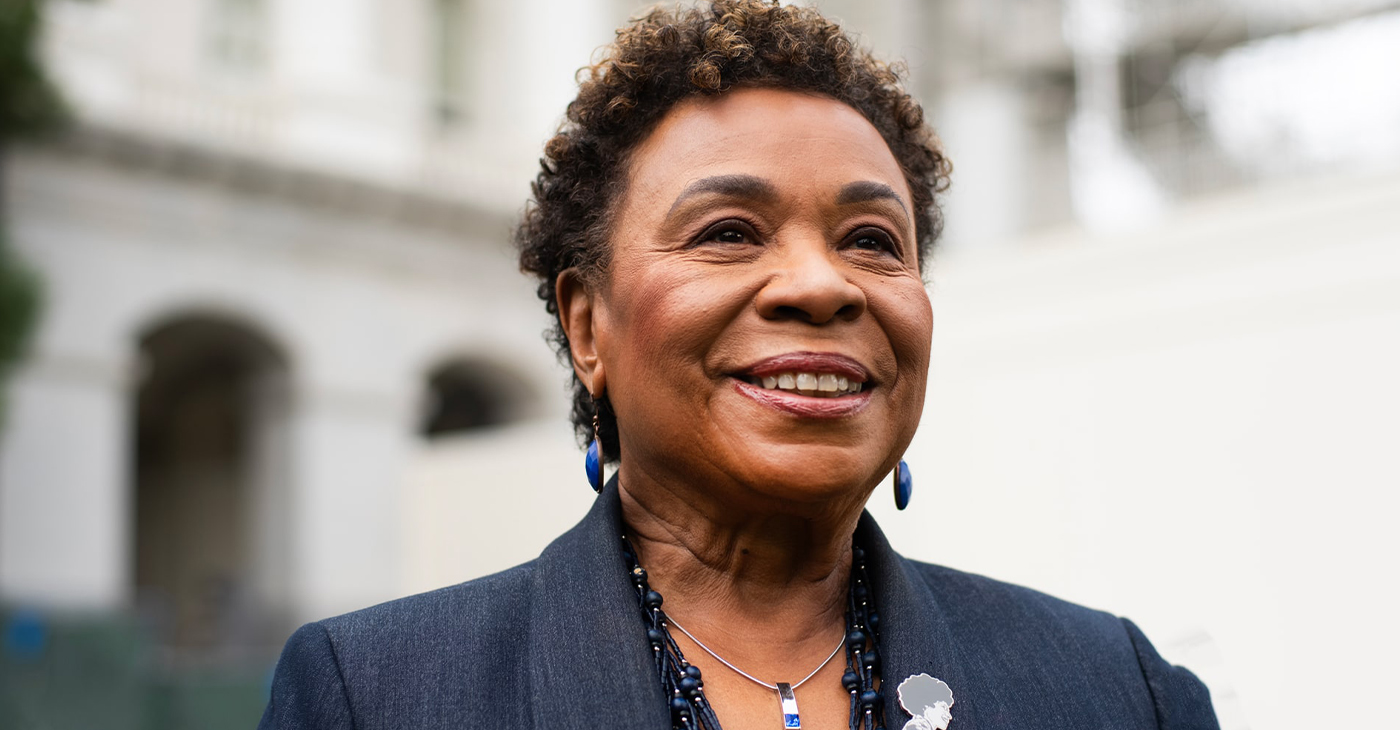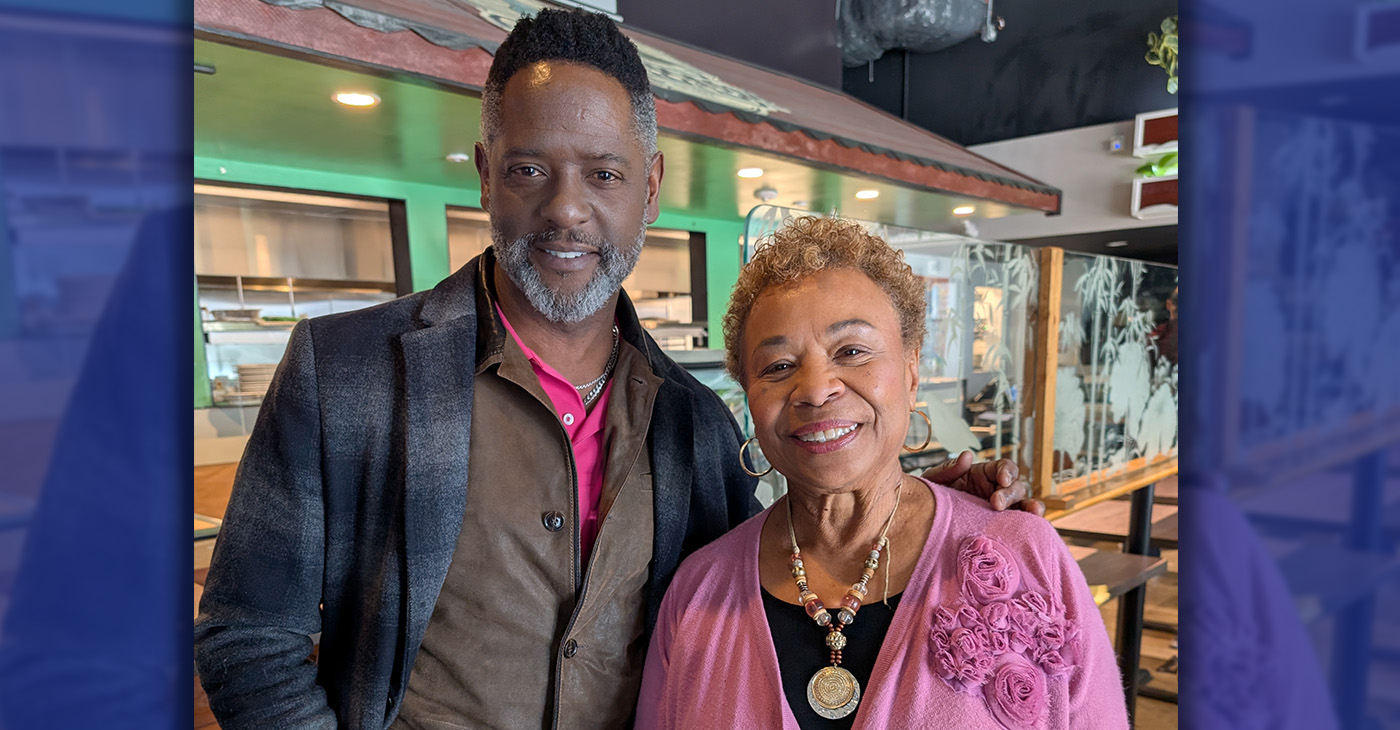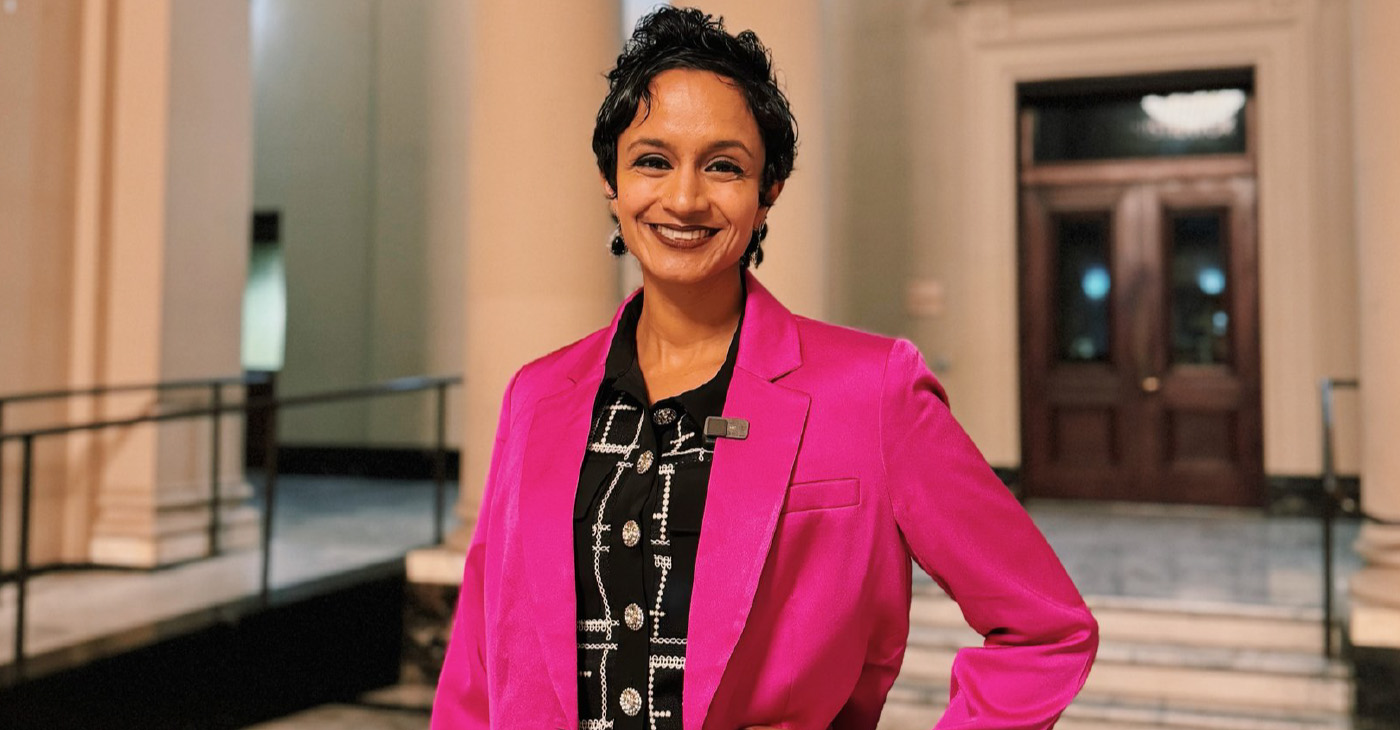Op-Ed
Child Watch: Criminalizing Poverty Is Big Business

By Marian Wright Edelman
NNPA Columnist
The recent Department of Justice report on police and court practices in Ferguson, Mo. put a much needed spotlight on how a predatory system of enforcement of minor misdemeanors and compounding fines can trap low-income people in a never-ending cycle of debt, poverty, and jail.
This included outrageous fines for minor infractions such as failing to show proof of insurance and letting grass and weeds in a yard get too high. In one case, a woman who parked her car illegally in 2007 and couldn’t pay the initial $151 fee has since been arrested twice, spent six days in jail, paid $550 to a city court, and as of 2014 still owed the city $541 in fines, all as a result of the unpaid parking ticket. The Department of Justice found each year Ferguson set targets for the police and courts to generate more and more money from municipal fines. And Ferguson isn’t alone.
The criminalization of poverty is a growing trend in states and localities across the country.
The investigation of Ferguson’s practices came after the killing of unarmed 18-year-old Michael Brown by a police officer, and last month the practice of criminalizing poverty made headlines again after Walter Scott was killed in North Charleston, S.C. Scott was shot in the back by police officer Michael Slager on April 4 as he ran away after being pulled over for a broken taillight. Scott had already served time in jail for falling behind on child support, and on the day he was stopped, there was a warrant out for his arrest for falling behind again. His family believes his fear of going back to jail caused him to run.
His brother told The New York Times that Walter Scott already felt trapped: “Every job he has had, he has gotten fired from because he went to jail because he was locked up for child support,” said Rodney Scott, whose brother was most recently working as a forklift operator. “He got to the point where he felt like it defeated the purpose.”
A 2009 review of county jails in South Carolina found that 1 in 8 inmates was behind bars for failure to pay child support. Rodney Scott remembered his brother trying to explain to a judge that he simply did not make enough money to pay the amount ordered by the court: “And the judge said something like, ‘That’s your problem. You figure it out.’”
The United States legally ended the practice of debtor’s prisons in 1833, and the Supreme Court ruled in Bearden v. Georgia (1983) that it is unconstitutional to imprison those who can’t afford to pay their debt or restitution in criminal cases, unless the act of not paying debt or restitution is “willful.”
But poor people are being increasingly targeted with fines and fees for misdemeanors and winding up in illegal debtors’ prisons when they can’t pay – and in some cases, then being charged additional fees for court and jail costs.
A recent investigation by National Public Radio, the New York University Brennan Center for Justice, and the National Center for State Courts cited a study estimating between 80-85 percent of inmates now leave prison owing debt for court-imposed costs, restitution, fines and fees.
In some jurisdictions defendants are charged for their room and board during lockup, probation and parole supervision, drug and alcohol abuse treatment, DNA samples, and even their constitutional right to a public defender. When poor people can’t pay those fees either, the cycle of debt and jail time continues.
The private companies providing probation services in more than half of the states are some of the biggest winners when poor people are targeted. If people on probation can’t afford the fees they are charged, they breach their probation contract; this can result in more jail time, making it even less likely that they’ll be earning the money they need, and people under the supervision of these private probation companies often become liable for charges exceeding the initial cost of their ticket or fine.
Federal law also prohibits people in breach of probation from receiving a range of benefits, including Temporary Assistance for Needy Families (TANF), food stamps, and Supplemental Security Income – once again, exacerbating the cycle of poverty, probation, and prison.
According to a study conducted by the American Bar Association’s Criminal Justice Section, there are more than 38,000 documented statutes nationwide creating collateral consequences for people with criminal convictions, including barriers to housing, employment, voting, and many public benefits.
By denying these citizens access to basic services they need to survive, our policies needlessly increase the risk of recidivism and continue to leave people truly trapped—and when we extend the cycle of poverty by criminalizing poor people, there are only a few greedy winners and many, many losers.
Marian Wright Edelman is president of the Children’s Defense Fund whose Leave No Child Behind® mission is to ensure every child a Healthy Start, a Head Start, a Fair Start, a Safe Start and a Moral Start in life and successful passage to adulthood with the help of caring families and communities. For more information go to www.childrensdefense.org.
###
Activism
Oakland Post Endorses Barbara Lee
Barbara Lee will be able to unify the city around Oakland’s critical budget and financial issues, since she will walk into the mayor’s office with the support of a super majority of seven city council members — enabling her to achieve much-needed consensus on moving Oakland into a successful future.

As we end the celebration of Women’s History Month in Oakland, we endorse Barbara Lee, a woman of demonstrated historical significance. In our opinion, she has the best chance of uniting the city and achieving our needs for affordable housing, public safety, and fiscal accountability.
As a former small business owner, Barbara Lee understands how to apply tools needed to revitalize Oakland’s downtown, uptown, and neighborhood businesses.
Barbara Lee will be able to unify the city around Oakland’s critical budget and financial issues, since she will walk into the mayor’s office with the support of a super majority of seven city council members — enabling her to achieve much-needed consensus on moving Oakland into a successful future.
It is notable that many of those who fought politically on both sides of the recent recall election battles have now laid down their weapons and become brothers and sisters in support of Barbara Lee. The Oakland Post is pleased to join them.
Activism
Actor, Philanthropist Blair Underwood Visits Bay Area, Kicks Off Literacy Program in ‘New Oakland’ Initiative
These community activations were coordinated with the San Francisco-based non-profit program “Room to Read.” Ray said he is also donating his time to read and take pictures with students to encourage their engagement and to inspire them to read more. The inspirational book “Clifford Ray Saves the Day” highlights Clifford Ray’s true story of saving a dolphin.

By Paul Cobb
New Oakland Series
Opinion Part 3
The Post mentioned three weeks ago that a number of our local luminaries were coming together to support the “New Oakland” movement. As this current national administration continues to eliminate our “legacy” institutional policies and programs left and right, most communities find themselves beyond “frozen” in fear.
Well, esteemed actor, long-time Bay Area supporter, and philanthropist Blair Underwood returned to Oakland this week to speak with city leaders, community trust agents, students, the Oakland Post, and local celebrities alike to continue his “New Oakland” initiative.
This week, he kicked off his “Guess Who’s Coming to Read” literacy program in some of Oakland’s middle schools. Clifford Ray, who played the center position of the 1975 World Champion Golden State Warriors, donated close to 1,000 books. Ray’s fellow teammate Charles “The Hopper” Dudley also gave Converse sneakers to students.
These community activations were coordinated with the San Francisco-based non-profit program “Room to Read.” Ray said he is also donating his time to read and take pictures with students to encourage their engagement and to inspire them to read more. The inspirational book “Clifford Ray Saves the Day” highlights Clifford Ray’s true story of saving a dolphin.
Underwood also spent quality time with the Oakland Ballers ownership group and visited the amazing Raimondi Park West Oakland community revitalization site. In the 1996 TV film Soul of the Game, Underwood played the role of the legendary first Black Major League Baseball player Jackie Robinson and commended the Ballers owners.
“This group of sports enthusiasts/ philanthropists needs to be applauded for their human capital investment and their financial capital investment,” Underwood said. “Truly putting their money and passion to work,” Underwood said.
Underwood was also inspired by mayoral candidate Barbara Lee’s open-minded invitation to bring public-private partnership opportunities to Oakland.
Underwood said he wants to “reinforce the importance of ‘collaborative activism’ among those most marginalized by non-empathic leadership. We must ‘act out’ our discomfort with passionate intentions to create healthy change.”
Activism
Councilmembers Ramachandran, Kaplan, Unger Identify Funds to Save Oakland Fire Stations
Our budget crisis – one of the worst in Oakland’s history – is compounded by the fact that people do not feel safe coming to Oakland due to our public safety crisis. By investing in our fundamental public safety resources today, we can send a signal to the world that Oakland is open for business. We have such a rich and vibrant culture, arts, and food scene that is worth celebrating – but we can only showcase this if we are able to keep our neighborhoods safe. Having fully functioning fire stations are absolutely essential to these efforts.

By Janani Ramachandran
There is no greater concern to the people of Oakland today than public safety. Fire stations are the bread and butter of essential city services – and every day that we have stations shuttered, we imperil the lives of our community members. In response to widespread outcry over the current and planned closure of stations, myself, along with Councilmembers Kaplan and Unger, have painstakingly worked to identify millions of dollars of new funding to save our stations. The legislation we introduced on Thursday, February 13th, will amend our budget to prevent the closure of four fire stations that are currently on the chopping block due to our budget crisis and will re-open two closed stations that have already been closed – Station 25 and 28 – in the near future. The resolution that will provide the funding to keep our stations open will go before the full City Council for a vote at our meeting on Tuesday, March 4th at 3:30 PM – and we invite you to join us at City Hall to share your perspective on the topic.
Our budget crisis – one of the worst in Oakland’s history – is compounded by the fact that people do not feel safe coming to Oakland due to our public safety crisis. By investing in our fundamental public safety resources today, we can send a signal to the world that Oakland is open for business. We have such a rich and vibrant culture, arts, and food scene that is worth celebrating – but we can only showcase this if we are able to keep our neighborhoods safe. Having fully functioning fire stations are absolutely essential to these efforts.
With the devastating Los Angeles fire at the top of people’s minds, terrible memories of Oakland’s own wildfires are re-surfacing from the 1991 Oakland Hills Firestorm to the Keller fire just a few months ago – and how essential fire stations are to mitigating these catastrophes. But in Oakland, our fire stations don’t just fight wildfires – they also provide emergency medical services to our most vulnerable constituents, put out structural fires and encampment fires, and much more.
We recognize that there are a number of competing interests and important initiatives fighting for sparse City resources. But from my perspective, core safety services are the most pivotal functions that a City must spend its resources on – especially given the outcry we have heard around fire stations.
The fight to save our stations is not over. The resolution we introduced is a critical first step, and there are hurdles to overcome. If you support keeping our fire stations open, we invite you to be a part of the solution by making your voice heard at the March 4th City Council meeting at 3:30 pm.
-

 Activism3 weeks ago
Activism3 weeks agoWe Fought on Opposite Sides of the Sheng Thao Recall. Here’s Why We’re Uniting Behind Barbara Lee for Oakland Mayor
-

 Activism4 weeks ago
Activism4 weeks agoSan Francisco Is Investing Millions to Address Food Insecurity. Is Oakland Doing the Same?
-

 #NNPA BlackPress4 weeks ago
#NNPA BlackPress4 weeks agoRev. Dr. Jamal Bryant’s Black Church Target Boycott Mobilizes 150,000
-

 Activism3 weeks ago
Activism3 weeks agoFaith Leaders Back Barbara Lee for Mayor, Criticize Candidate Loren Taylor for Dishonest Campaigning
-

 Activism4 weeks ago
Activism4 weeks agoOakland Post: Week of March 12 – 18, 2025
-

 Activism3 weeks ago
Activism3 weeks agoOakland’s Most Vulnerable Neighborhoods Are Struggling to Eat and Stay Healthy
-

 #NNPA BlackPress4 weeks ago
#NNPA BlackPress4 weeks agoRecently Approved Budget Plan Favors Wealthy, Slashes Aid to Low-Income Americans
-

 Activism3 weeks ago
Activism3 weeks agoGroup Takes First Steps to Recall District Attorney Diana Becton
























































